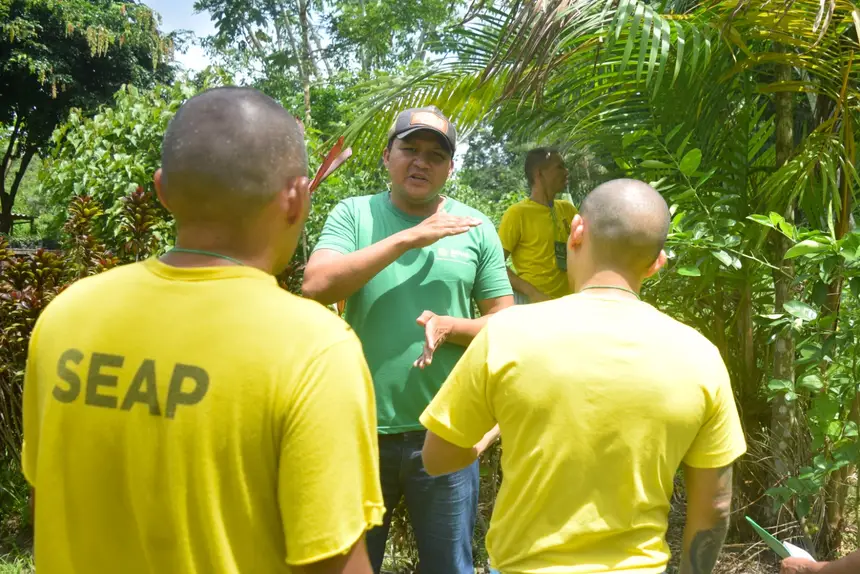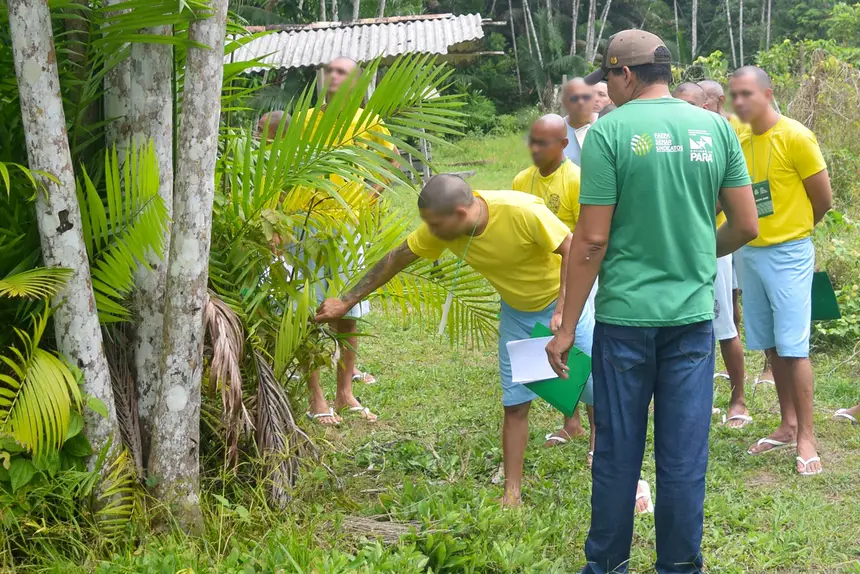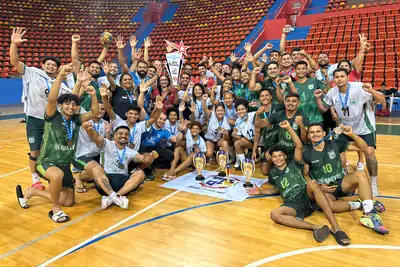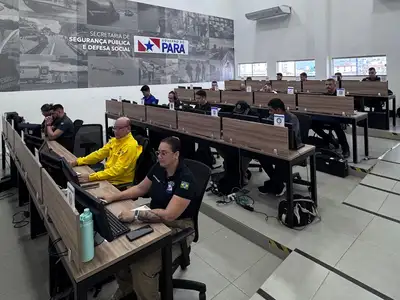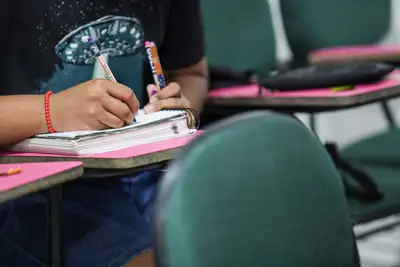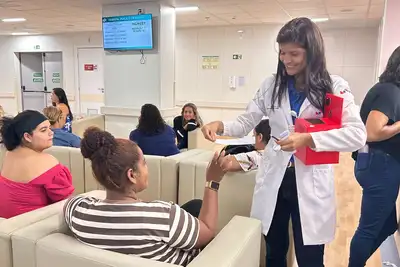Açaí Cultivation Course Empowers Inmates of Seap and Reinforces the State's Commitment to Bioeconomy
The initiative by Seap, in partnership with Senar, combines professional qualification and sustainability, promoting new opportunities for social reintegration within the prison system.
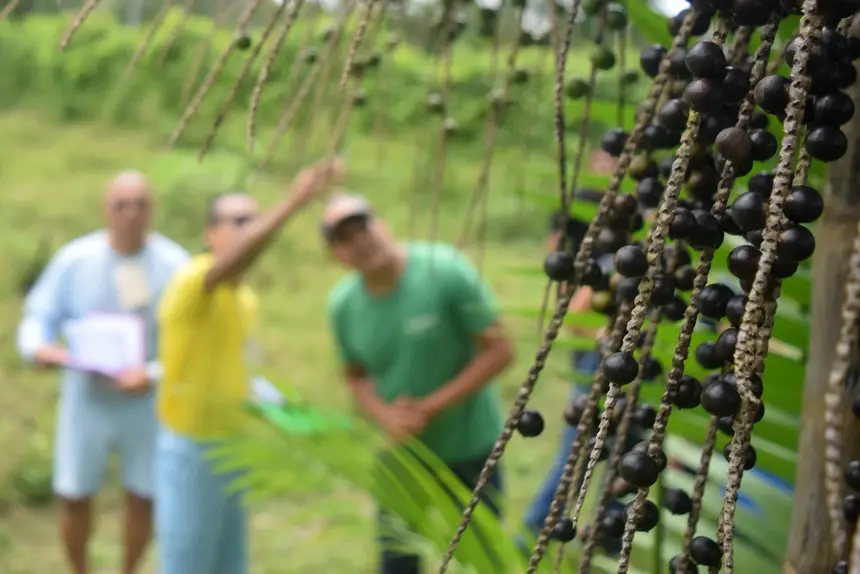
The State Secretariat of Penitentiary Administration (Seap), through the Social Reintegration Directorate (DRS), in partnership with the National Rural Learning Service (Senar), promotes the Fruit Cultivation Course – Açaí Cultivation for inmates of the Semi-Open Regime Reintegration Unit of Santa Izabel (URRS Santa Izabel). The goal is to qualify 15 inmates for the sustainable cultivation of açaí, encouraging job and income generation and contributing to social reintegration.
During the course, participants learn about soil preparation, planting, management, and processing of açaí, a fruit that symbolizes Pará's culture and is one of the region's main agricultural products. The training has a workload of 40 hours and lasts four days, with completion scheduled for this Friday (24).
The training aims to ensure participants gain technical knowledge while also raising environmental awareness and commitment to sustainable productive practices, aligned with the appreciation of natural resources and the strengthening of the green economy.
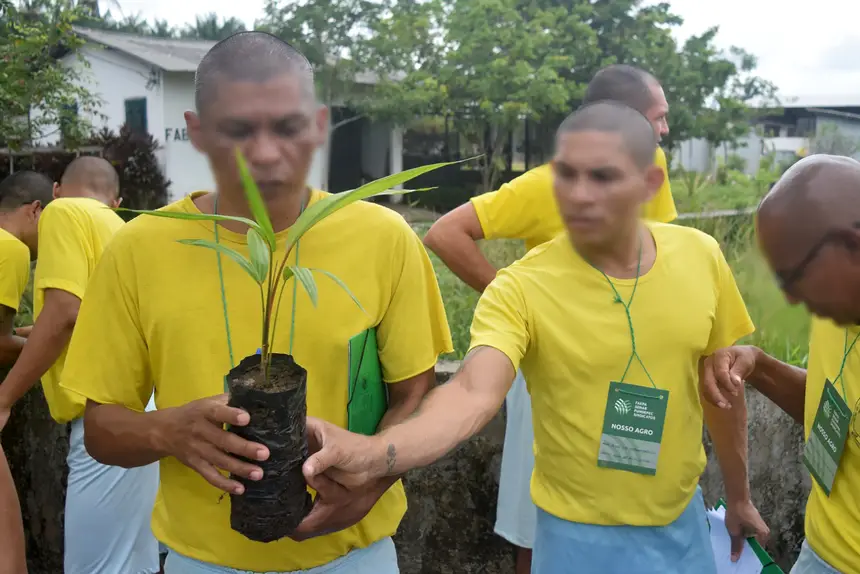
The analyst in Penitentiary Management and educator Ivanilsa Aguiar highlighted the importance of the course for the inmates of the unit. “It is of fundamental importance. Because it guarantees public safety, citizenship, and the human dignity of this detainee. When Seap offers learning opportunities, they can build a new future, including for all who serve their sentence in the prison system,” she stated.
Class Dynamics - The classes combine theoretical and practical moments. The first day was dedicated to theory, providing inmates with the necessary foundation to begin field activities.
According to the course instructor, Pablo Leal, the initiative represents another step in the process of rebuilding lives within the prison system by uniting training and environmental purpose.
“More than a fruit, açaí is a symbol of a culture and Amazonian identity. For inmates in resocialization programs, açaí represents a concrete alternative for generating work and income. The sustainable cultivation and management of açaí value the standing forest and strengthen the regional bioeconomy,” he declared.
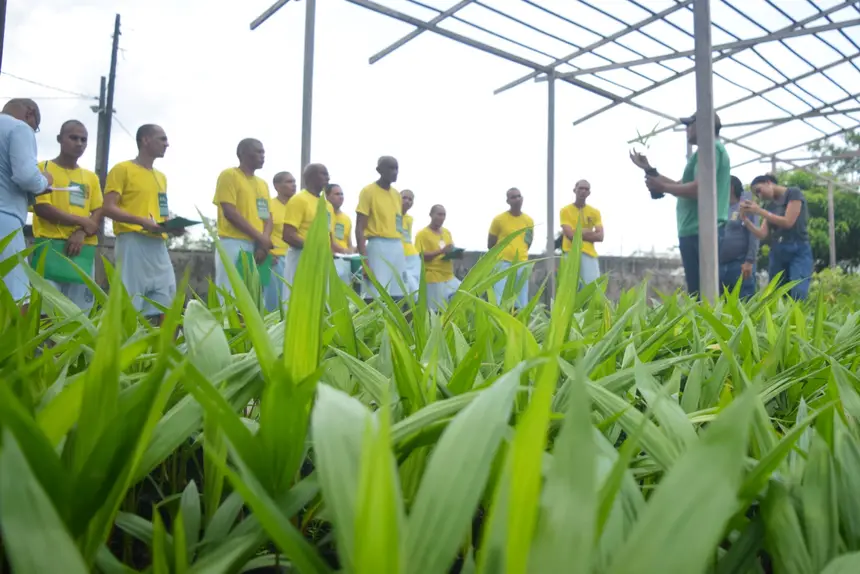
The national and international recognition of açaí projects the Amazon as a territory of knowledge and sustainability. Thus, the fruit unites income, identity, tradition, environmental preservation, and social inclusion in the State of Pará.
The initiative reinforces Pará's role as a protagonist in discussions about sustainability, social inclusion, and responsible development. By offering a course focused on the cultivation of a typical product of the Amazon rainforest, Seap reaffirms its commitment to public policies that integrate training, the environment, and resocialization.
For inmate Manuel Gomes, the experience goes beyond professional qualification; it represents a life lesson. “This is a great opportunity for us who are here. We want to reintegrate. When I leave, I want to have a new life and use this knowledge I gained here. So, for me, this açaí cultivation course was very good,” he concluded.
This achievement reinforces the State's purpose of promoting education and opportunities within the prison system, contributing to inmates being able to build new life trajectories based on dignified work and respect for nature. More than a technical training, the açaí cultivation course symbolizes reconstruction and hope, showing that sustainability also begins with human and social actions.
Data - Pará leads açaí production in Brazil. In 2024, the State was responsible for more than 90% of national production, equivalent to 1.9 million tons. According to a study by the Amazon Foundation for Support of Studies and Research (Fapespa), between 1987 and 2022, Pará's production jumped from 145.8 thousand tons to 1.9 million, a growth of over 1,200%.
Text: Fernanda Ferreira / Intern NCS Seap Pará


